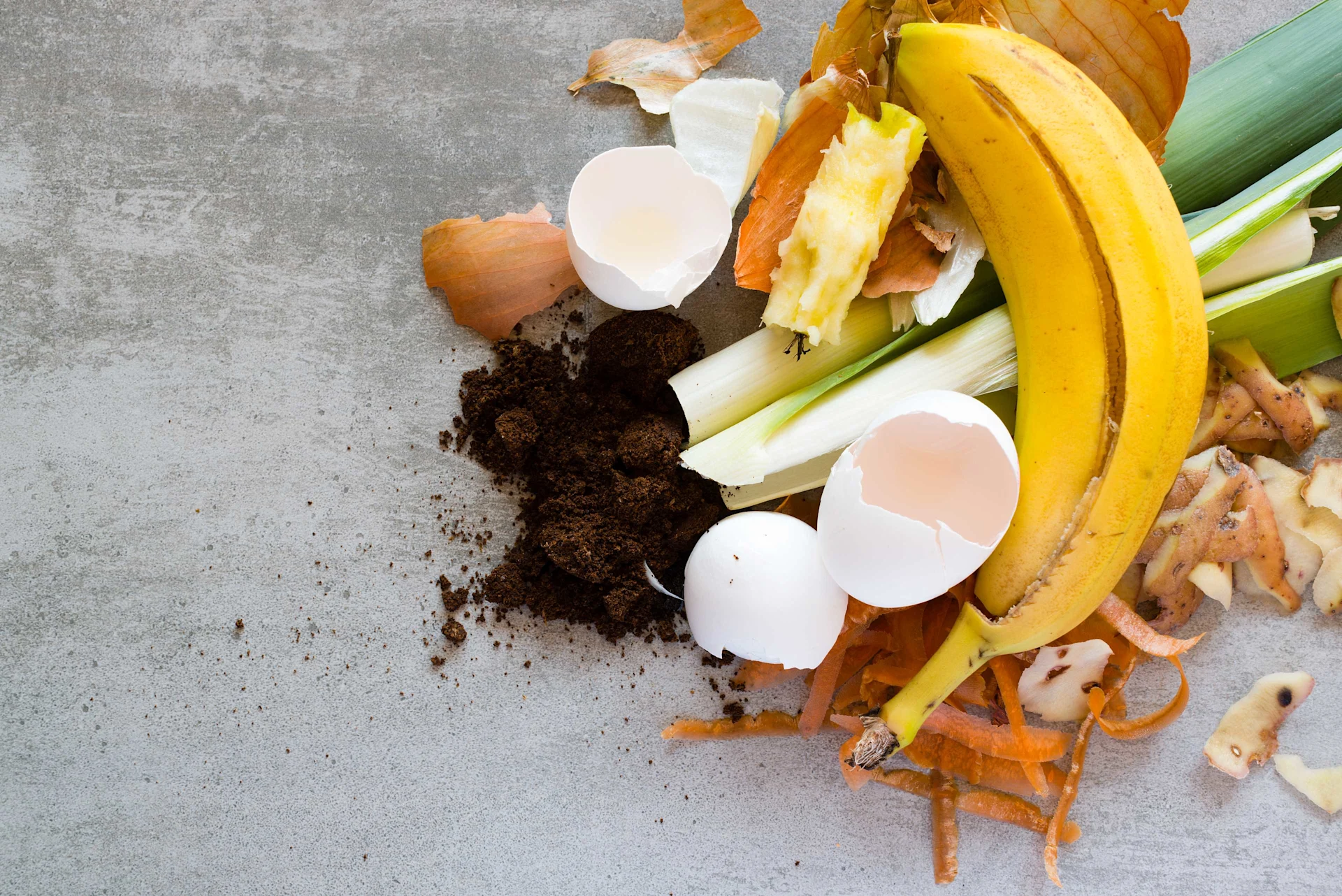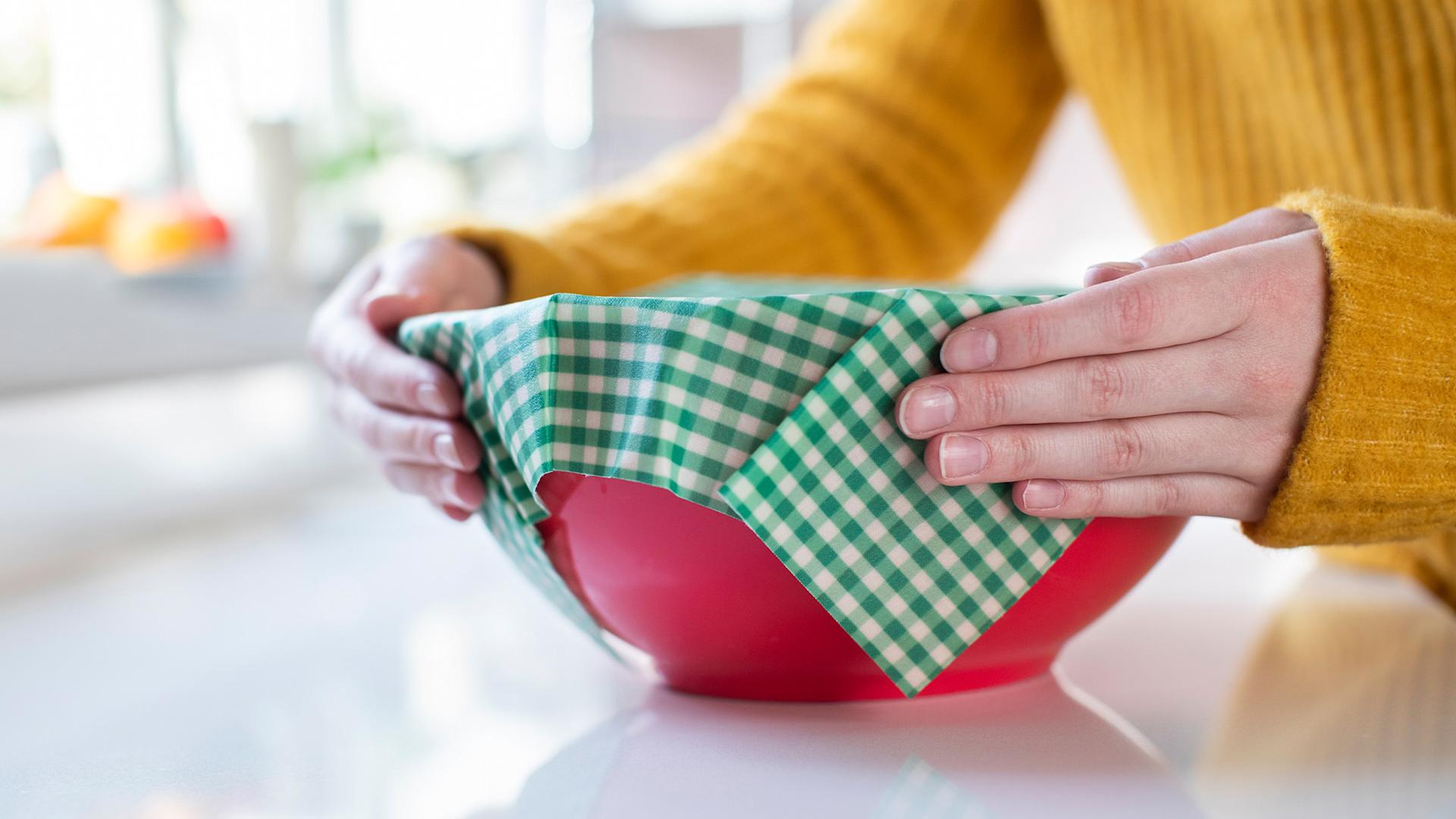
Food waste
What do you know about food waste?
Take part in the food waste quiz and find out how much you already know.
navigation

Sustainability
We encounter plastic everywhere in the household, whether we are cleaning, washing up or taking a shower. This doesn't have to be the case. You can implement these tips to reduce your plastic footprint at home in no time.
Loofah sponges can be used in kitchens and bathrooms in every way imaginable. They work like their plastic counterparts and are suitable for cleaning surfaces and washing up. These sponges are made from sponge gourd, which means they are 100 per cent plant-based and do not release microplastics. One particularly practical aspect is that loofah sponges are washable at 60 degrees.
Shampoos are sweeping the bathrooms, or rather the showers, of Switzerland right now. The environment wins. Why? Because these soaps are particularly economical and save up to two plastic bottles of liquid shower gel or shampoo. Most of these products are certified as natural cosmetics, for example, by the well-known Natrue or Eco-Cert Cosmos Natural labels. Admittedly, they take some getting used to. If you have trouble getting used to solid shampoo, you can use refill pouches and refill the bottle at home.
Minimising detergent use also saves a lot of packaging. The Washo washing sheets come in sleek cardboard packaging and replace just under one plastic refill pouch of two litres of detergent. One sheet per wash goes directly into the washing machine – and when finished, the packaging is recycled. The ecological washing sheets protect the environment and save a lot of space in your shopping bag. Those who use them regularly should use a water softener for their machine from time to time, as this is not included in the washing sheets.
We've all been there: you need a few more plates and glasses for a birthday party than you have at home. If a willing neighbour cannot be found to help out, you can go for single-use tableware made from renewable raw materials such as palm leaves, sugar cane fibres or wood. If possible, make sure to buy compostable products that you can dispose of in the green waste bin or in your own garden compost. Wood fibre products should be FSC-certified if possible. Did you know? With single-use tableware made from renewable raw materials, Migros saves 560 tonnes of plastic every year.
Beeswax cloths are increasingly being used instead of cling film and aluminium foil. The cotton cloths coated with a thin layer of beeswax are currently making a comeback. In fact, our grandmothers already used these types of cloths to wrap food and keep it fresh. Good to know: with the right care, the cloths can last for around one to two years. However, you should not use them for meat, fish or hot food. If you are prone to cold hands, you should consider using an alternative such as food containers, because warm hands are needed to soften the wax and wrap food or sandwiches properly.
At Migros, customers only buy cotton swabs with cotton tips and a shaft made of FSC-certified paper from sustainable forests. Migros thereby saves 143 tonnes of plastic per year – and that’s just with cotton swabs. If you want to go for an even more sustainable version, you can also choose the organic version with cotton tips made from organic cotton.
Instead of a plastic scrubbing brush, you can use a wooden brush with a replaceable brush head. Since the bristles are also all-natural, no microplastics end up in the dishwater. Most such brushes are FSC-certified and originate from sustainable forestry. However, a quick check to verify this never hurts.
Discover exciting stories about all aspects of Migros, our commitment and the people behind it. We also provide practical advice for everyday life.